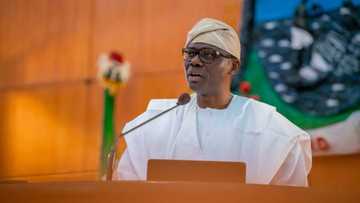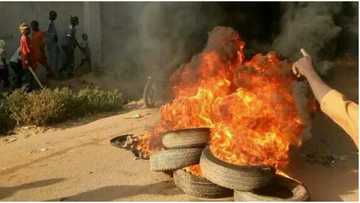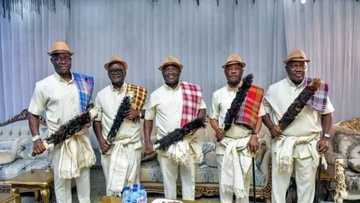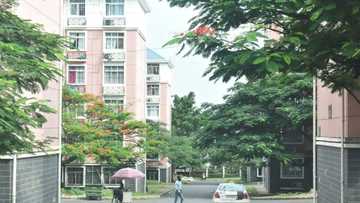Bridging the Gap: How NGO is Addressing Low-Quality Education in Ajegunle Slum with Library for Kids
Grace Chinenye Nkwocha could not hold back her tears as she was gripped by the unnerving memories of young kids from Ajegunle struggling to control the computer mouse in the 21st century. This small, movable device helps them control a range of things on the computer whenever they come for the free ICT training every Saturday.
Dressed in a multi-coloured jazzy t-shirt that symbolises dreams and confidence, she appeared emotionally sober, having seen it all in countless Ajegunle dreams dying in their cradle and many stellar stars fading into darkness because of the highly polluted atmosphere where they were born.
“Growing up in Ajegunle and getting into the world of work, you just see an answer that there are gaps that people from this side (referring to Ajegunle) have and how they are being integrated into the society really has a way of having a lot of effects on us,” She said.
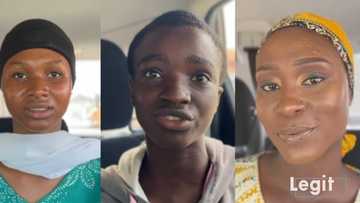
Read also
Beyond barriers: How NGO is raising stars in girl child from neglected slum communities in Lagos
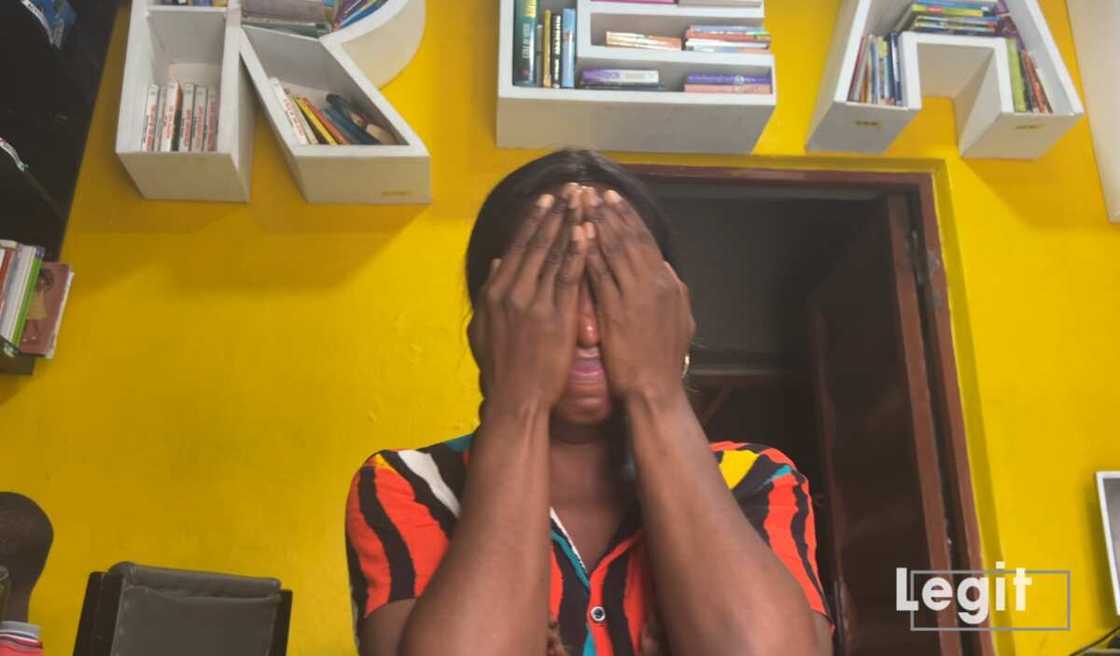
Source: Original
Grace was raised in Ajegunle as a child. But having travelled abroad and taught overseas for eight years, she could see the difference. This stark reality of experiencing two different lives made her conclude that “there are gaps” in how people born in forgotten, refuse-ravaged waterlogged communities like Ajegunle are integrated into society.
She noted that the quality of education people from low-communities are exposed to contributes to the “social anomalies and defects.” But as an impact-maker, all she wanted was to make change —a dream which triggered a legacy-building response that inspired her to establish a library for the less-advantaged students in the community.
PAY ATTENTION: Follow us on Instagram - get the most important news directly in your favourite app!
In terms of importance, the library is more of a sanctuary for the Ajegunle kids; this is where they are exposed to the world of endless possibilities and opportunities, taken to their wonderland and prepared for whatever dreams they set for themselves from their home communities.
Ajegunle through the big lens
Ajegunle, popularly known as “AJ City'' or simply “AJ”, is a neighbourhood located in the heart of Lagos, Nigeria, consisting of almost all the ethnical groups in Nigeria. It is located in the Ajeromi-Ifelodun local government area of Lagos.
Although in Yoruba language Ajegunle means “a place where riches are situated,” ironically, stories from the community are the opposite of what it was meant to be by semantic drift.
From the hills of refuse to the hanging gutters of dirt harbouring dangerous diseases and reptiles, the community is clearly in need of help. With 1.5 million population —majorly those who survive through meagre earnings, Ajegunle lacks basic social amenities and government attention, thus making it easy for rascality, hooliganism and other social vices to thrive.
Spotlighting Ajegunle further shows that the community has over 100 untarred roads. According to a recent report, these streets lack proper drainage, medians, walkways and streetlights. There are potholes which make it easy for floods to render havoc in the rainy season. Also, some residents live in mahogany-made shelters surrounded by the endless sight of dirt.
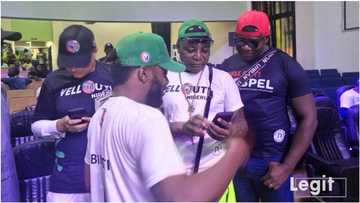
Read also
"E don tey when we dey craze": Area Fada sends cryptic message to Tinubu, Atiku, Obi, others
However, the beautiful thing about this community is that it has produced notable personalities, including the former coach of the Nigeria national team Samson Siasia, former Super Eagles and Manchester United forward Odion Jude Ighalo, retired footballer turned pastor Taribo West, and popular musician John Odafe Asiemo known as Daddy Showkey.
When Legit.ng visited the community to assess the education standard of the settlement, it was nothing to write home about compared to its neighbouring communities like Surulere, Lagos Mainland and others.
Young children were seen roaming the streets when they should be in schools. This corresponds to the United Nations International Children's Emergency Fund (UNICEF)’s claims that one in every five of the world’s out-of-school children is in Nigeria, even though primary education is officially free and compulsory.
Recently, the child rights-focused organisation labelled Nigeria as the epicentre of out-of-school children in the world, with the figure estimated to be 10.5 million as of Quarter one (Q1) of 2022.

Read also
BBNaija trips: "Every flex you saw was sponsored," Adekunle puts fellow housemates on blast over 'fake life'
In 2022, the Lagos state government led by Governor Babajide Sanwo-Olu allocated 10% of the year’s budget to education. This was ₦173.526 billion of the ₦1.758 trillion of the state’s Y2022 Budget of Consolidation.
The same year, Nigeria allocated 5.4% of its budget to education, falling short of UNESCO’s standard of 15 to 20% of the annual budget. This was faulted by the world organisation.
Looking at the indices, the problem of education not getting adequate funding is a general issue, though some communities are at the receiving end of this misplaced priority. One of them is, of course, Ajegunle.
Bridging the inequality gap through the library
In the face of the multi-dimensional education challenges facing Ajegunle, Transforming Lives and Communities Initiative (TSCI), a non-governmental organisation in the Ajegunle community, is shaping lives and transforming low-income communities by establishing children's libraries/discovery centres, and by that bridging the “equality gap.”
In a conversation with Legit.ng, the director of the project Grace Chinenye Nkwocha said the library project, which came to be during the COVID-19 pandemic, boasts a reading clinic for those who have difficulties reading. This is where the kid beneficiaries are exposed to various methodologies. There is also free ICT training for the students of Ajegunle.
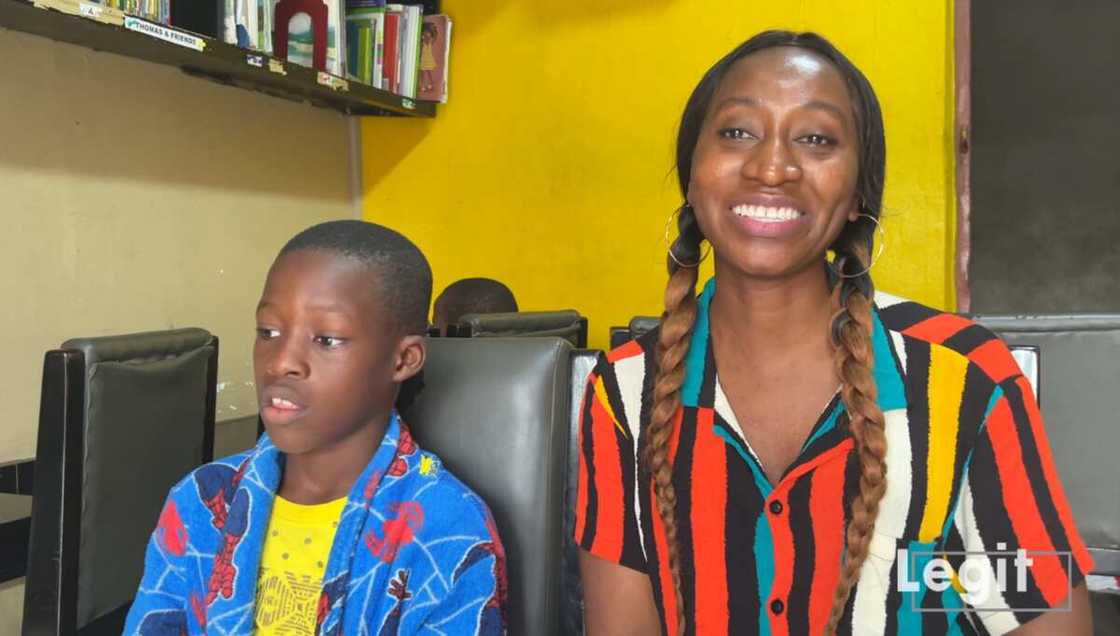
Source: Original
Every Saturday, there is a once-in-month “Discovery Saturday” programme where they “learn some science experiments, art, robotics, and virtual realities,” and there is Game Day where they learn different “decision-making skills, team work collaboration through games.”
“The whole idea is what they cannot afford to learn in their local schools, they can have access to them here (in terms of) quality education resources and quality technology… so that they don’t go into the direction of crime and prostitution.
"Care and excellence is what we focus on. We try to make this place appealing, beautiful with various activities,” she explained.
One of the beneficiaries of the library is Victor. The 10-year-old learned about the place because his mother, a petty trader, sells directly to the library. When he first registered, he could not read.
“We saw he had reading difficulty. He could not read two and three-letter words like “ants, the. We started working on him and now he can read well,” Grace proudly said as Victor sat beside her nodding in confirmation.
Victor who is in Primary 5 at LA Layeni Primary School told Legit.ng that one of the volunteers at the library taught him how to read. He said:
“ He (referring to the volunteer) taught me how to read very well, he taught me some spellings I did not know. Now, I can read very well. My favourite book is Marvel, Spiderman. I like it because it’s very important.”
Dare to dream
17-year-old Samson Emmanuel is another beneficiary of the library. He told Legit.ng that he regularly comes to the place to prepare himself for his West African Examination Council (WAEC).
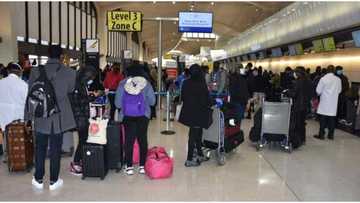
Read also
Japa: What young Nigerians should consider before travelling to US, UK, other countries, RCCG Pastor Opens up
Emmanuel believes that with his ability to read and write, thanks to the efforts of the volunteers at the library, he “can make it in life.”
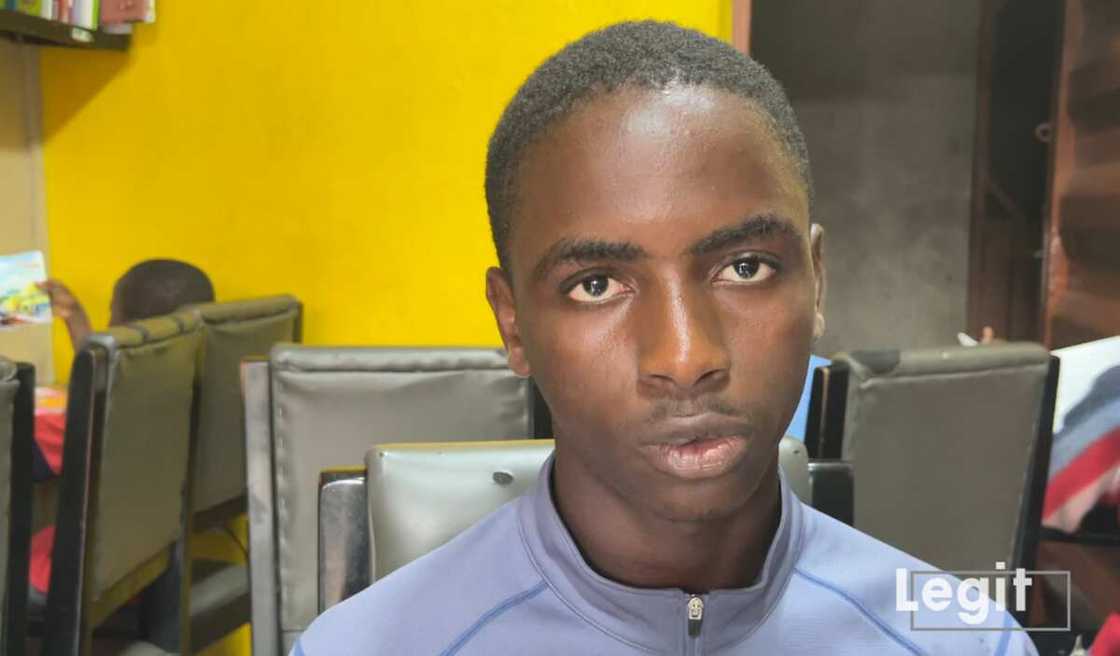
Source: Original
The same optimism was expressed by Ifeanyi, a first-time user whose dream is to become a Navy officer and Kehinde Bello, a 10-year-old girl who said she comes to the library to learn more about her school subjects and current affairs.
“I want to become a doctor in the future so that I can help people,” Kehinde, who was introduced to the library by her neighbour, said.
This apparently confirms the kind of dream-driven mentality the library is implanting in the mind of the Ajegunle kids.
One of the success stories of the project is that through different programmes, the project has been able to get more community volunteers, including parents who in return are trained in tech skills and design —though this is a strategy channelled towards the initiative's sustainability.
The limitations
Although the library runs from 9am to 6pm Monday to Saturday every week, it is too small to accommodate over one thousand registered users. The beneficiaries do come “in batches”, like 20-30 students together.
“I really feel sad. Sometimes we have to tell these children to go home and come back in another 30 minutes. Some of them come as far as twenty-five-minute distance.
"We wish to have a bigger space that can have science, technology, engineering, art and a big library for the community. We cannot accommodate everybody at the same time. We are disenfranchising some people which we shouldn’t be doing,” Grace noted.
Another major factor is the fund-running of the project which Grace said she mainly shoulders, especially the pay of the rent. Although when people started seeing the seeds of positive impacts the initiative is sowing, there has been monthly support from concerned individuals. Notwithstanding, there is more way to go.
“Funding, yes, I just wish we get more people who believe in what we are doing and help us build something that will be a legacy for everyone of us,” she further explained.
Grace also spoke about a few parents lacking willingness and cooperation. While many parents encourage their children to visit the library to read, a few of them complain about their kids spending too much time there.
***
This story was produced by Legit.ng in partnership with Nigeria Health Watch through the Solutions Journalism Network, a nonprofit organisation. dedicated to rigorous and compelling reporting about responses to social problems.
Source: Legit.ng

Nurudeen Lawal (Head of Politics and Current Affairs Desk) Nurudeen Lawal is an AFP-certified journalist with a wealth of experience spanning over 8 years. He received his B/Arts degree in Literature-in-English from OAU. Lawal is the Head of the Politics/CA Desk at Legit.ng, where he applies his expertise to provide incisive coverage of events. He was named the Political Desk Head of the Year (Nigeria Media Nite-Out Award 2023). He is also a certified fact-checker (Dubawa fellowship, 2020). Contact him at lawal.nurudeen@corp.legit.ng or +2347057737768.
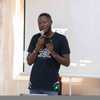
Rahaman Abiola (Editor-in-Chief) Rahaman Abiola is a Nigerian journalist, editor, and media trainer with a decade of experience stranding diverse roles in both traditional and digital media. As the Editor-in-Chief of LEGIT.ng, he leads content direction with data-driven editorial practice, demonstrating a commitment to modern newsroom management and mentoring team(s) of professionals through audience-centric innovation. His work involves leveraging social media and emerging technologies towards impactful journalism, media innovation, etc. Contact via: rahaman.abiola@corp.legit.ng; +2348078943317.


